第139章 NOTES(3)
7.Tarbell,I,209-210.
8.Herndon,306.
9.Lamon,334;Herndon,306;N.and H.,I,297.
VII.THE SECOND START.
1.Herndon,307,319.
2.Herndon,319-321.
3.Herndon,314-317.
4.Herndon,332-333.
5.Herndon,311-312.
6.Herndon,319.
7.Lamon,165.
8.Herndon,309.
9.Herndon,113-114;Stories,18~
10.Herndon,338.
11.Lamon,324.
12.Lincoln,11,142.
13.Herndon,347.
14.Herndon,363.
15.Herndon,362.
16.Lincoln,II,172.
17.Lincoln,II,207.
18.Lincoln,II,173.
19.Lincoln,II,165.
VIII.A RETURN TO POLITICS.
1.Johnson,234.
2.I have permission to print the following letter from the Honorable John H.Marshall,Judge Fifth Judicial Circuit,Charleston,Illinois:
"Your letter of the 24th inst.at hand referring to slave trial in which Lincoln was interested,referred to by Professor Henry Johnson.Twenty-five years ago,while I was secretary of the Coles County Bar Association,a paper was read to the Association by the oldest member concerning the trial referred to,and his paper was filed with rue.Some years ago I spoke of the matter to Professor Johnson,and at the time was unable to find the old manuscript,and decided that the same had been inadvertently destroyed.However,quite recently I found this paper crumpled up under some old book records.The author of this article is a reputable member of the bar of this country of very advanced age,and at that time quoted as his authority well-known and very substantial men of the county,who had taken an active interest in the litigation.His paper referred to incidents occurring in 1847,and there is now no living person with any knowledge of it.The story in brief is as follows:
"In 1845,General Robert Matson,of Kentucky,being hard pressed financially,in order to keep them from being sold in payment of his debts,brought Jane Bryant,with her four small children to this county.Her husband,Anthony Bryant,was a free negro,and a licensed exhorter in the Methodist Church of Kentucky.But his wife and children were slaves of Matson.In 1847,Matson,determined to take the Bryants back to Kentucky as his slaves,caused to be issued by a justice of the peace of the county a writ directed to Jane Bryant and her children to appear before him forthwith and answer the claim of Robert Matson that their service was due to him,etc.This action produced great excitement in this county.Practically the entire community divided,largely on the lines of pro-slavery and anti-slavery.Usher F.Linder,the most eloquent lawyer in this vicinity,appeared for Matson,and Orlando B.Ficklin,twice a member of Congress,appeared for the negroes.Under the practice the defendant obtained a hearing from three justices instead of one,and a trial ensued lasting several days,and attended by great excitement.Armed men made demonstrations and bloodshed was narrowly averted.Two of the justices were pro-slavery,and one anti-slavery.The trial was held in Charleston.The decision of the justice was discreet.It was held that the court had no jurisdiction to determine the right of property,but that Jane and her children were of African descent and found in the state of Illinois without a certificate of freedom,and that they be committed to the county jail to be advertised and sold to pay the jail fees.
"At the next term of the circuit court,Ficklin obtained an order staying proceedings until the further order of the court.
Finally when the case was heard in the circuit court Linder and Abraham Lincoln appeared for Matson,who was insisting upon the execution of the judgment of the three justices of the peace so that he could buy them at the proposed sale,and Ficklin and Charles Constable,afterward a circuit judge of this circuit,appeared for the negroes.The judgment was in favor of the negroes and they were discharged.
"The above is a much abbreviated account of this occurrence,stripped of its local coloring,giving however its salient points,and I have no doubt of its substantial accuracy."3.Lincoln,II,185.
4.Lincoln,II,186.
5.Lamon,347.
6.Lincoln,II,232-233.
7.Lincoln,II,190-262.
8.Lincoln,274-277.
IX.THE LITERARY STATESMAN.
1.Herndon,371-372.
2.Lincoln,II,329-330.
3.Lincoln,III,1-2.
4.Herndon,405-408.
5.Lincoln.II,279.
6.Lamon,416.
X.THE DARK HORSE.
1.Lincoln,V,127.
2.Tarbell,I,335.
3.Lincoln,V,127,138,257-258.
4.Lincoln,V,290-291.He never entirely shook off his erratic use of negatives.See,also,Lamon,424;Tarbell,I,338.
5.Lincoln,V,293-32&6.McClure,23-29;Field,126,137-138;Tarbell,I,342-357.
XII.THE CRISIS
1.Letters,172.
2.Lincoln,VI,77,78,79,93.
3.Bancroft,11,10;Letters,111.
XIII.ECLIPSE.
1.Bancroft,II,10;Letters,172.
2.Bancroft,II,9-10.
3.Herndon,484.
4.McClure,140-145;Lincoln,VI,91,97.
5.Recollections,111.
6.Recollections,121.
7.Recollections,112-113;Tarbell,I,404-415.
8.Tarbell,1,406.
9.Tarbell,I,406.
10.Lincoln,VI,91.
11.Tarbell,1,406.
12.Herndon,483-484
13.Lamon,505;see also,Herndon,485.
14.Lincoln,VI,110.
XIV.THE STRANGE NEW MAN.
1.Lincoln,VI,130.
2.Merriam,I,318.
3.Public Man,140.
4.Van Santvoord.
5.N.and H.,I,36;McClure,179.
6.Herndon,492.
7.Recollections,39-41.
8.Lincoln,VI,162-164.
9.Bancroft,II,38-45.
10.Public Man,383.
11.Chittenden,89-90.
12.Public Man,387.
XV.PRESIDENT AND PREMIER.
1.Hay MS,I,64.
2.Tyler,II,565-566.
3.Bradford,208;Seward,IV,416.
4.Nicolay,213.
5.Chase offered to procure a commission for Henry Villard,"by way of compliment to the Cincinnati Commercial"Villard,1,177.
6.N.and H.,III,333,note 12.
7.Outbreak,52.
8.Hay MS,I,91;Tyler,II,633;Coleman,1,338.
9.Hay MS,I,91;Riddle,5;Public Man,487.
10.Correspondence,548-549.
11.See Miss Schrugham's monograph for much important data with regard to this moment.Valuable as her contribution is,Ican not feel that the conclusions invalidate the assumption of the text.
12.Lincoln,VI,192-220.